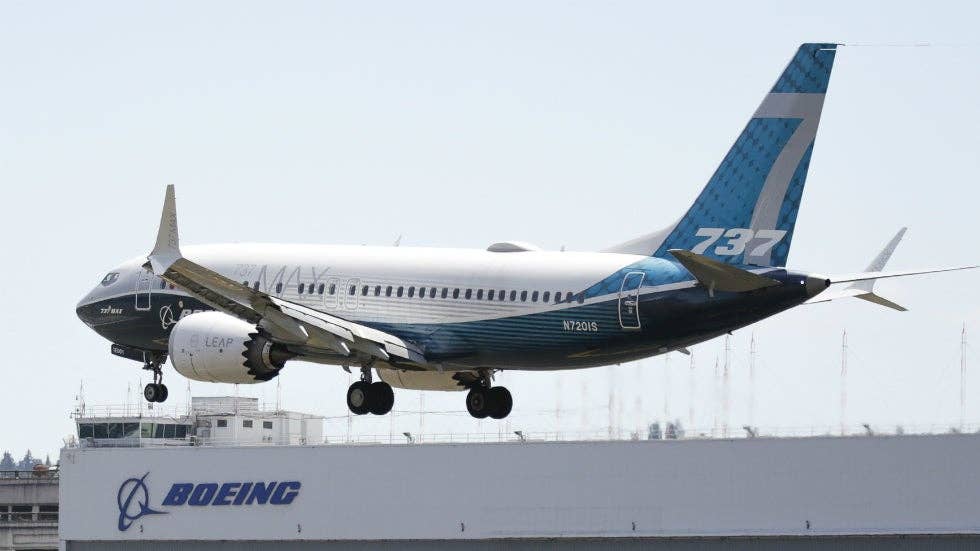Congress Passes “Aircraft Certification, Safety, and Accountability Act”
Part of the massive omnibus spending bill and COVID-19 emergency relief package that was pushed through the U.S. Senate Monday night includes, as expected, a compromise version of the Aircraft…

Part of the massive omnibus spending bill and COVID-19 emergency relief package that was pushed through the U.S. Senate Monday night includes, as expected, a compromise version of the Aircraft Certification, Safety, and Accountability Act. The act calls on the FAA to revise the organization delegation authorization (ODA) process, with an emphasis on oversight and accountability, change the way it reviews design changes, and, specifically, review the ODA program for Boeing. The final version of the act leaves the ODA concept in place; some felt that the FAA would be forced to scrap or radically overhaul the way it delegates certification processes.
According to Chair of the House Committee on Transportation and Infrastructure Peter DeFazio, “Our bipartisan—and now bicameral deal—is the result of nearly two years of intense investigation in my Committee, multiple public hearings on both sides of the Capitol, and countless conversations with the families of the victims and the aviation community about how best to address the failings that led to the development of a fatally-flawed aircraft and an FAA certification process that ultimately allowed [the Boeing 737 MAX] into service. I’m immensely grateful to my Congressional partners in this effort, especially Aviation Subcommittee Chair Rick Larsen, who have all been steadfast in our mission to make sure the story of the MAX is never repeated.”
“This bicameral agreement will not only strengthen our country’s aviation certification process, it will enable continued American competitiveness in the aerospace industry and ensure the United States remains the gold standard in aviation safety,” Ranking Member Sam Graves said.
GAMA’s CEO Pete Bunce issued this statement after the bill passed. “Many of the provisions included in the Aircraft Certification, Safety and Accountability Act, bolster efforts long championed by GAMA. For the last several years, we have been working with the FAA and the international aviation community to implement safety management systems for manufacturers, which we were pleased to see included in the bill. The compromise bill also addresses other important issues identified by Congress and various technical and expert groups that have reviewed the MAX and related processes and are generally consistent with GAMA’s certification and safety priorities. These include increasing resources for the FAA safety workforce and oversight activities, improving safety decision-making for new technologies, and facilitating the FAA’s international engagement in safety harmonization and improvements. GAMA will continue its ongoing work with the FAA and other aviation regulators to ensure this legislation improves the safety and resiliency of the aviation system through successful implementation of safety management systems, needed investments and changes in safety oversight, and strong international engagement on key safety training and harmonization efforts.”
In summarizing the act, the House Committee on Transportation and Infrastructure said the legislation:
- Provides direct FAA approval of organization delegation authorization (ODA) unit members—employees at aircraft manufacturers who approve findings of compliance with design requirements on the FAA’s behalf;
- Requires the appointment of FAA safety advisors to strengthen FAA oversight of and communication with ODA unit members throughout the certification process;
- Requires aviation manufacturers to adopt safety management systems;
- Requires comprehensive safety analysis of aircraft design changes;
- Orders an independent review of Boeing’s ODA, safety culture, and capability to perform FAA-delegated functions;
- Establishes interdisciplinary project teams, consisting of experts from the FAA and other federal agencies, to aid the FAA in its review of certification submissions related to new technology or novel design;
- Authorizes civil penalties against aviation manufacturer supervisors who interfere with or place undue pressure on ODA unit members;
- Ensures that manufacturers will complete system safety assessments on all new and derivative aircraft designs for flight control systems that consider realistic pilot responses to flight deck alerts;
- Provides new confidential reporting channels at the FAA and whistleblower protections for manufacturer employees;
- Authorizes more than $75 million over three years for the FAA to recruit and retain engineers, safety inspectors, human factors specialists, software and cybersecurity experts, and other qualified technical experts;
- Establishes new requirements on the disclosure of safety-critical systems;
- Strengthens international aviation safety and pilot training standards by authorizing additional funding for bilateral and multilateral engagement and assistance;
- Creates a new Air Grant fellowship program to increase technical aviation knowledge in Congress and at the FAA and other Federal agencies;
- Requires the FAA to review pilot training, including manual flying skills training, and the assumptions relied upon by the FAA and manufacturers when designing an airplane, and to work with the international community to improve pilot training globally; and
- Authorizes new funding for the FAA to develop or expand a FAA Center of Excellence to address flight automation and pilot response.






